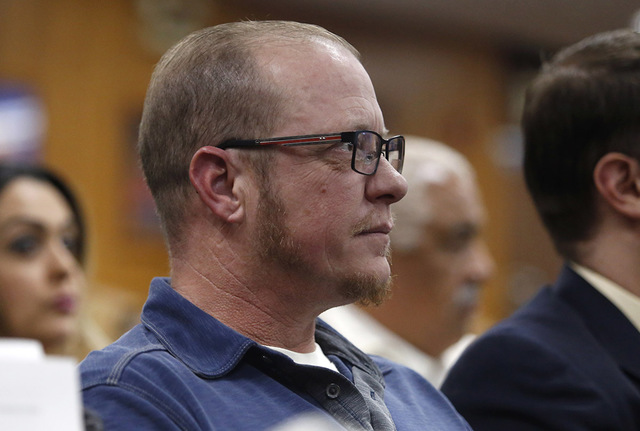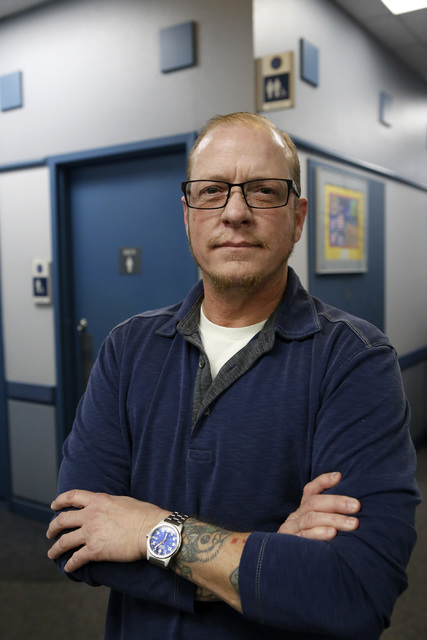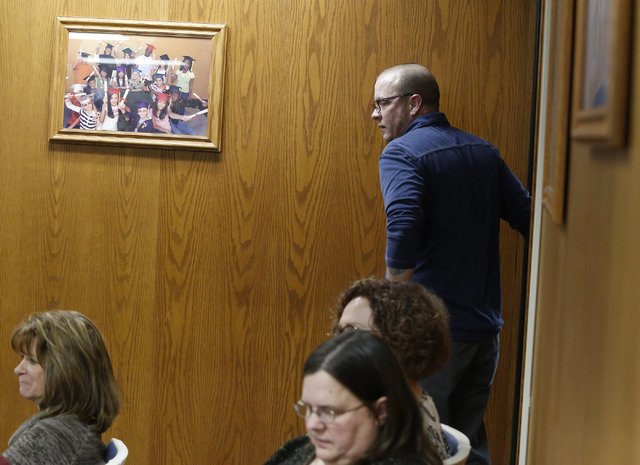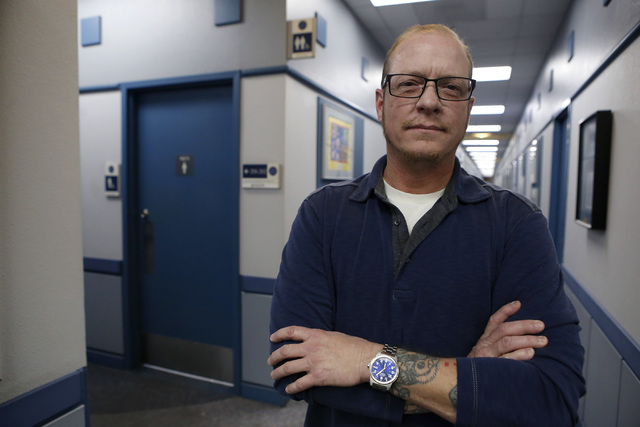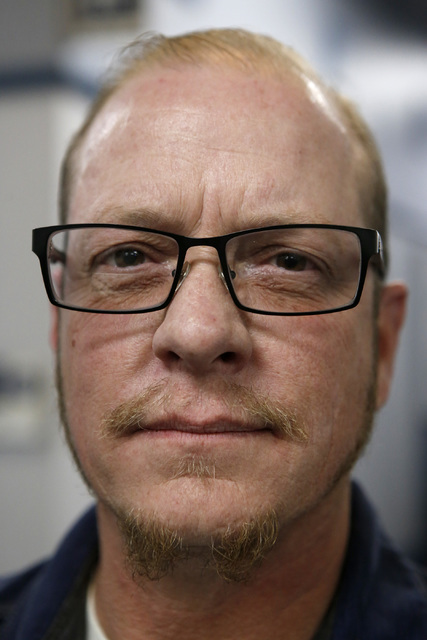Former CCSD cop hopes his case prompts transgender protections
Former Clark County School District police officer Bradley Roberts loved his job, but when the transgender man was told he couldn’t use most of the district’s restrooms, he started getting stomachaches.
He stopped drinking water at work. He couldn’t sleep. He dreaded going to work in the morning and grew paranoid that district staffers were watching him to see which restroom he used.
“That was the worst year of my life, working for the school district,” he said.
The School Board unanimously approved an $80,000 settlement with Roberts on Thursday night, bringing an end to a discrimination lawsuit that began in 2012.
Trustees did not return calls for comment on the settlement, but Trustee Carolyn Edwards at Thursday’s meeting called for the board to discuss the district’s transgender policies by the end of March.
Roberts sat in the fourth row, anxiously waiting for the settlement agreement to go through. He waited through the Pledge of Allegiance, a prayer, public comments about school robotics teams and a student complaint about the dress code.
“I was holding my breath,” he told the Las Vegas Review-Journal after it was approved.
‘WEIGHT OFF MY SHOULDERS’
Roberts began working for the district as a campus monitor in 1992 after serving four years in the U.S. Navy as an aviation hydraulic mechanic. He did a ride-along with Las Vegas police, fell in love with the profession, and joined the district police department in 1994.
In 2011, he notified his supervisors that he was transitioning to a man and started conforming to the grooming standards for male officers and using the men’s restroom, court records said.
Roberts, 50, said he struggled with his gender his whole life. He knew when he was 4 or 5 that he should be a boy, but he tucked those feelings away until about 2009, when he started seeing cable TV shows about people who were transgender and doing research on the internet.
“I was much happier once I made it,” he said of the decision to transition. “It was like a weight off my shoulders.”
His 2011 “coming out” at work wasn’t just because he was becoming visibly more masculine, he said. That year, Nevada adopted anti-discrimination laws that include protections for gender identity and expression.
The law went into effect Oct. 1, 2011. Four days later, Roberts was called into a meeting: Police leaders and a district lawyer told him he couldn’t use the men’s room because he was biologically female, and he couldn’t use the women’s room because he looked like a man.
Police supervisors agreed to refer to Roberts by his new name and use male pronouns with him. But department leaders, led by the district’s legal team, told Roberts he would not be permitted to use men’s facilities until he showed them proof that he had a surgery to change his anatomy.
Roberts filed a complaint with the Nevada Equal Rights Commission in 2012, and the district reversed its bathroom ban, court records show. He filed a second complaint with the Equal Employment Opportunity Commission, saying that emails about him sent to the entire department had opened him up to workplace harassment and retaliation for filing the complaint.
He said co-workers were making jokes about his genitalia and sex life. Roberts filed the lawsuit in 2014. U.S. District Judge Jennifer Dorsey ruled in October that the district had discriminated against him under state and federal laws.
A GENTLE SHOVE
Roberts said he’s hopeful his case will prompt the district to adopt protections for transgender students and employees.
The district has rules against harassment but no specific policies about which facilities people who are transgender can use, whether they are students or staff. Roberts said that hurts students.
“Kids shouldn’t get a stomachache thinking about going to school,” he said.
Spokeswoman Melinda Malone said in a statement that the district takes an individualized approach to the issue “designed to meet the privacy and safety needs of all children in the school.”
“The District continues to work with various members of the local community, including parents, students and school staff to determine the best way to address this important issue while continuing to provide a safe and respectful learning environment for all students in accordance with state law and district policy,” the statement said.
On Wednesday, the Trump administration revoked an Obama-era directive to allow transgender students to use the bathrooms and locker rooms that correspond with their gender identity.
That guidance, which said the federal law against sex discrimination in schools also applies to gender identity, already had been blocked by a federal judge in Texas after several states sued.
The U.S. Supreme Court was set to hear oral arguments in March on the case of a transgender teen who was barred from using the men’s restroom in Virginia. The case would have decided lingering questions about how that federal sex discrimination law should be interpreted, but the fate of the case was not clear.
Roberts said he’s relieved his fight is finally over. He will use the settlement money to pay off some debts and plans to start his own business.
“I might buy some new pants,” he joked.
Contact Wesley Juhl at wjuhl@reviewjournal.com and 702-383-0391. Follow @WesJuhl on Twitter.
RELATED
CCSD settles lawsuit with transgender police officer for $80K
CCSD settles discrimination case with transgender police officer



